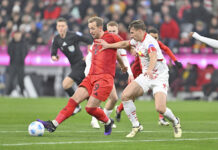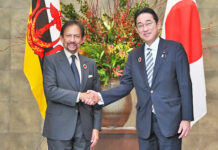Graduate education in the 21st Century has undergone a marked transformation from previous generations. Technology has revolutionised teaching and learning, making education at the postgraduate level more accessible and flexible. As the world becomes increasingly more complex, the demand for advanced knowledge, skills and expertise in the workplace will continue to grow. Postgraduate studies have become a key part of the future of education and area smart investment in your future. Pursuing a postgraduate degree not only offers a path to future career advancements, but also enables prospective aspirants to continuously thrive and succeed in uncertain and evolving global contexts.
POSTGRADUATE STUDIES AS FUTURE OF EDUCATION
The global landscape has changed tremendously since the pre-pandemic years: technology has significantly changed the way we work, the employment market has become much more competitive, and the world has become inter-connected in ways not imaginable before Zoom conquered video conferencing – and became one of the most reliable forms of communication for governments, businesses, educational institutions, schools, families and friends. For many of us, it became clear that the world has rapidly evolved and that it is changing faster than ever before and in ways that are hard to predict.
The knowledge and skills that may have been essential for a successful career at one time seemed no longer sufficient today. To succeed in the post-pandemic world, advanced knowledge and expertise, especially ones that can keep apace and ahead of a constantly changing and transforming global context, have become necessary assets. Pursuing a postgraduate education can be an important pathway towards professional growth and future success. It offers an opportunity to develop new skills, knowledge, and competencies that can help prospective job seekers stay ahead of the curve and thrive in their careers.

BENEFITS OF PURSUING POSTGRADUATE EDUCATION IN 21ST CENTURY
Whether you’re looking to deepen your knowledge and acquire highly specialised expertise in a chosen field, or thinking of widening your career opportunities and increasing your chances for career advancement, a graduate degree can help set you apart from others and position you for success. One of the advantages of postgraduate education is the opportunity to acquire deep knowledge and expertise in a specialised field of study, especially in strategic areas that gained prominence and increased relevance to current and future contexts.
Such knowledge is highly valued by employers and can enhance your career prospects or open doors to career advancement. It also offers an opportunity for you to lead and stay ahead of the curve, for example, through introducing new trends, practices or thinking in the field, adopting and integrating new technologies to existing systems, bringing in new insights, skills and perspectives to enhance your organisation’s capabilities, and so on.
The learning experience and knowledge gained through postgraduate education can help you perform outstandingly in your existing career, or help successfully pivot you to a new one. The exposure to new ideas in research and professional practice ensures that you are able to stay at the forefront of developments and contribute to the growth of your field or industry.
Whether your plans involve advancing to a leadership position within your organisation, pursuing a career in academia or research, or realigning your priorities to fit new life ambitions or aspirations, a postgraduate education can be an important first step towards achieving these goals.
PURSUING YOUR POSTGRADUATE EDUCATION AT NIE NTU, SINGAPORE
At the National Institute of Education, Nanyang Technological University, Singapore (NIE NTU, Singapore), we are committed to providing students with transformational learning experiences and equipping them with the skills and knowledge necessary to thrive and succeed in today’s rapidly changing economy.
As an institute of the Nanyang Technological University (NTU) and Singapore’s only recognised institution for teacher accreditation, NIE prides itself in its ability to prepare future-ready educators and developing professionals with deep knowledge, skills, and cognitive agility. Our faculty members are experts and leaders in their fields, and our programmes and specialisations have been designed to offer practical, forward-thinking, and relevant courses, with grounded real-world application.
The NIE graduate education programmes are focused on developing essential attributes and competencies that our graduates would need to succeed in the 21st Century by (among others): preparing students to succeed in a technology-driven environment and facilitating their development into critical thinkers, creative problem-solvers, active collaborators, and effective communicators; providing flexible, customised, and personalised approaches to (continuous) learning – through the active use of technology – that can allow students to succeed and adapt to future contexts; utilising innovative instructional approaches to create educational experiences that offer students opportunities to apply their skills to productively manage real-world situations, or creatively design sustainable solutions to future problems; and focusing on cultivating values, attitudes and cultural competence to empower students to see the social world through ethical lenses, navigate cultural differences with sensitivity and respect, and to become adaptable and resilient 21st Century citizens.
NIE’s graduate programmes seek to inspire personal growth and transformation in our students so that they are well-placed to strive towards future career success. Equipped with 21st Century skills, knowledge, and competencies, NIE graduates are better prepared to meet the challenges of a constantly evolving global economy, and are committed to making important contributions in their respective fields and industry. – Dr Suhaimi Afandi






















































